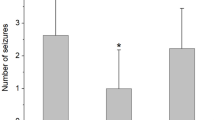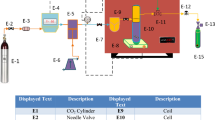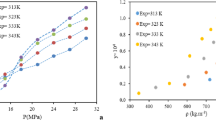Abstract
WE have recently investigated the metabolism in man of sorbitol uniformly labelled with carbon-14. The results show clearly that sorbitol is rapidly and relatively completely metabolized to carbon dioxide in the normal and in the diabetic subject. Table 1 shows that, after an oral dose of 35 gm. of sorbitol containing carbon-14 sorbitol (total activity 30 µc), the expired carbon dioxide became highly radioactive within an hour and remained active for a further 8 hr. Only about 10 per cent of the activity appeared in urine and fæces. The exact percentage of recovery of radioactive carbon in the expired carbon dioxide cannot be calculated in these two cases without certain assumptions regarding the total carbon dioxide production, which for experimental reasons could not be measured in these tests. Nevertheless, at least 70 par cent and probably 90 per cent of the activity administered can be acounted for in the expired carbon dioxide.
This is a preview of subscription content, access via your institution
Access options
Subscribe to this journal
Receive 51 print issues and online access
$199.00 per year
only $3.90 per issue
Buy this article
- Purchase on SpringerLink
- Instant access to full article PDF
Prices may be subject to local taxes which are calculated during checkout
Similar content being viewed by others
Author information
Authors and Affiliations
Rights and permissions
About this article
Cite this article
ADCOCK, L., GRAY, C. Metabolism of Sorbitol. Nature 177, 329–330 (1956). https://doi.org/10.1038/177329b0
Issue date:
DOI: https://doi.org/10.1038/177329b0
This article is cited by
-
Renewable resource based hyperbranched epoxy thermosetting nanocomposite with cellulose nanofiber as a sustainable material
Cellulose (2019)
-
Untersuchungen zur parenteralen Verwertung von Oligosacchariden beim Menschen und der Ratte
Zeitschrift für Ernährungswissenschaft (1973)
-
Der Umsatz von Sorbit im Tierkörper unter enteraler und intravasaler Dauerinfusion
Zeitschrift für Die Gesamte Experimentelle Medizin (1965)
-
�ber den intermedi�ren Stoffwechsel des Sorbits im Kindesalter
Zeitschrift f�r Kinderheilkunde (1964)
-
Zur Nierenvertr�glichkeit parenteral verabreichter Sorbitl�sungen
Klinische Wochenschrift (1960)



